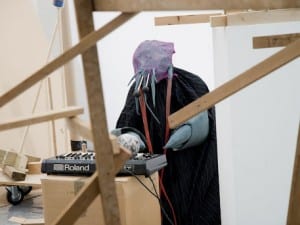At the forefront of the fashion and design industries for many years, Hemingway set up Red or Dead in 1982 the label grew to phenomenal popularity. Hemingway Design was created in 1999, covering a variety of housing projects as well as product, clothing and furniture design.
You’re judging the Best of Manchester Awards this year. How did you get involved in that?
One of the places where we started our business was Afflecks Palace in Manchester. I’ve always kept a relationship with Manchester. Also we’re having a retrospective of 30 years of Red or Dead and then Hemingway Design at Urbis in 2011. I feel passionately that regionalism is very important. If everything’s focused on London all the time then it’s not a healthy state of affairs for the country. There’s talent all around the country, the more you can promote it the more sustainable it is. Then everyone’s not looking to London all the time.
What is it about Manchester style that sets it apart from the rest of the country?
I think there’s always been a very strong second-hand culture. In Manchester, there were always people wanting to look cool, but do it on the cheap. People are very good at that which is why places like Afflecks Palace and the Northern Quarter have always thrived. It’s also got a very strong indie-culture. It’s always gone off on a tangent and is very keen on its own identity. That has gone on to fashion. I don’t think there’s a specific Manchester look though, it’s quite eclectic really.
How would you say people’s attitude to fashion has changed over the past ten years?
There’s definitely been a healthy movement towards where labels are perhaps not as important. It’s a bit cheesy and nasty to overtly wear a label. I think it’s very healthy that people can go to Topshop to actually buy decent fashion, and they’re employing good designers now rather than looking what other designers do and aping it. That’s healthy because it’s brought prices down. You can actually get clothes made cheaply and do it ethically. It’s just how the supply chain’s controlled.
How will the recession effect the fashion and design industries?
We started off our first company in a very severe recession in the early 80s, and it was probably one of the most creative times that Britain has ever known. You get cheap rates on the high street and more opportunity. All these things like people mourning Woolworths, well there’s no point in mourning a pick and mix shop. It’s a great big space on the high street which, if councils are clever, and young people are bright, things like that could be turned into the new Afflecks Palace of all our high streets. There is opportunity. The public want something different. People are being more thoughtful, but it still means there’s opportunity out there. And that whole means of moving towards doing it yourself, whether it’s growing veg, making clothes, doing art yourself, all of that’s healthy. It gets people doing things and thinking.
So you don’t think it’s going to effect the industry in a negative way?
It depends what part of the industry. If it means more people will start up on their own and start little businesses, then it adds more serendipity and variation. If it hits some of the big retailers then it‘s probably because they’re not good enough and they’ll have to adapt to a new way of thinking.
Hemingway Design specialises in affordable and sustainable design. Why do you think access to good design is important?
The whole idea of being a designer is to improve things, it’s not just there to create another product. But the most important thing for us, when working on housing is to make sure the housing functions in a better place, then on top of that you’ve got to try to make it look good so people feel good about going home.
There is a growing public interest in the design and aesthetics of things. Why do you think that is?
Well, it’s part of being alive — seeing something and finding it stimulating your brain. People have grown up with design more than ever before. I’m 48 and when I was young there was no such thing as a style magazine on your coffee table, the word design wouldn’t have been understood or used in my household. Now everybody grows up understanding what a designer does. They’ve all seen style magazines, things on telly, because of the media people have got access to it. Go back 20 or 30 years and design was really a very middle class thing and now it’s available to everybody. In theory good design should make life better. If more people are interested in it, pushing it and demanding it, then it’s got to be of benefit.
For further information on the Best of Manchester Awards: www.urbis.org.uk.
For further information on HemingwayDesign: www.hemingwaydesign.co.uk.





